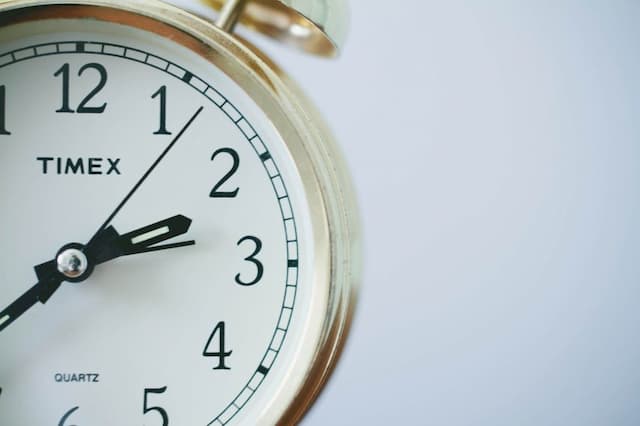The Time Change is This Weekend: We Switch to Summer Time

On the night of Saturday 28th March to Sunday 29th March 2020, we switch to summer time. In other words, the days will lengthen by an hour, and we will lose an hour of sleep.
Don’t forget: this Sunday 29th March 2020, we are switching to summer time! This means that we advance our watches and clocks by one hour: in the night from Saturday to Sunday, at 2 a.m., it will actually be 3 a.m.
⏰ [ChangementDheure]
Le changement d’heure, c’est le 29 mars.
➡️ Le passage à l’heure d’été s’effectue dans la nuit de samedi à dimanche.
✅ À 2 heures du matin, il sera 3 heures ⏰ pic.twitter.com/E7dSLa1Q3c— service-public.fr (@servicepublicfr) March 20, 2020
But, confinement requires, we will see the days lengthen by an hour … from our window!
What is the time change?
Every year in France, and since 1976, the changeover to summer time takes place on the last Sunday of March, a few days after the start of spring. This period extends until the middle of autumn.
Concretely, we advance our watch by one hour, and we, therefore, lose an hour of sleep.
The primary objective of this modification of the clock was to achieve energy savings by adapting better to natural lighting. But over time, these changes have been criticized for the effects, sometimes harmful, on health.
Almost at the end?
Are we going to do without the time change one day? The results of a study launched by the European Affairs Committee of the National Assembly in 2019 are final:
- 61.16% of those questioned have a negative, or even very negative, the experience of the time change;
- 83.71% of them agreed to put an end to the time change twice a year;
- 51.29% wanted to favour summer time.
In the spring of 2019, MEPs proposed that “the time change planned for the last Sunday in March 2021 is the last for EU Member States who wish to keep summer time”.
The member states of the European Union have until April 1st, 2020 to decide on the final decision. But does the current containment risk changing the situation? Sabine Thillaye, president of the commission for European affairs of the National Assembly affirms:
“We are in a status quo with containment. Furthermore, member states have not yet agreed on a final decision. “
Israel questions summer time postponement
Israel, to stem the coronavirus pandemic, plans to postpone the transition to daylight saving time.
The government’s objective is “to prevent people from taking advantage of the extra hour of daylight to stroll the streets at night.”
The Israeli Prime Minister advocates a time change of May 1st.
Enjoyed this? Get the week’s top France stories
One email every Sunday. Unsubscribe anytime.


